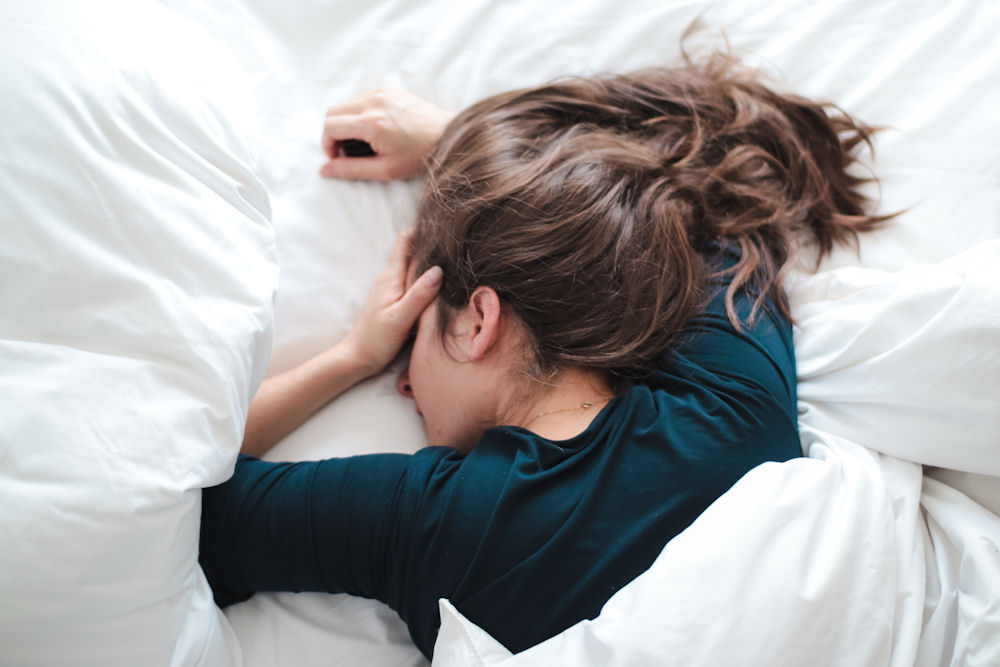While the detox and withdrawal process is crucial for recovery, it is also one of the most challenging and uncomfortable aspects of the entire treatment and recovery process. Withdrawal symptoms can often test the physical and mental strength of a person in ways they have not been tested before. That’s why, whether it is you going through it or someone you know, understanding the physical, emotional, and psychological aspects of withdrawal is important.
Surf City Detox in Huntington Beach, California, will walk you through the ins and outs of withdrawal, including what to expect during detox in huntington beach and how to help someone going through withdrawals, whether that someone is yourself or someone you love.
Understanding Detoxification and Withdrawal

Before we dive into what happens to the body and brain during the withdrawal process, it’s important to have an understanding of how detoxing and withdrawal work.
Before addiction treatment of any kind can begin, the first step is to undergo medical detox. Detoxing is done to rid the body of all the harmful substances that are in it so that the healing process can begin. It is often recommended that detoxing be done under the care and supervision of trained medical professionals at a facility such as Surf City Detox due to the withdrawal symptoms that accompany the detox process.
Withdrawals refer to the symptoms, both physical and mental, that occur when someone stops or greatly reduces taking an illicit substance or a substance of abuse, such as drugs or alcohol. These symptoms are the direct result of the brain’s dependency on the substance, which, over time, changes the chemical makeup of the brain so that the brain thinks it needs the substance to function. When that substance is suddenly removed, the brain reacts in the form of withdrawal symptoms.
Withdrawal symptoms can vary based on factors such as the substance used, the duration of use, the frequency of use, and the person’s overall health. Some substances come with withdrawal symptoms that can be deadly when not monitored and treated professionally, while others may produce milder symptoms.
While the overwhelming majority of substances of abuse can produce withdrawal symptoms, some of the more commonly abused substances that lead to withdrawal symptoms include:
- Alcohol
- Opioids (heroin, fentanyl, oxycodone)
- Benzodiazepines (Xanax, Valium)
- Stimulants (cocaine, methamphetamine)
- Prescription drugs

What Happens To the Body During the Process of Withdrawal?
While withdrawal symptoms can be different for everyone based on some of the factors we listed above, for the most part, these symptoms typically affect a person both physically and mentally. When a substance is removed, the central nervous system, which has adapted to function with the substance, suddenly becomes unbalanced. This causes a cascade of physical, mental, and emotional symptoms, including:
- Physical Symptoms – These can include shaking, sweating, headaches, rapid heart rate, muscle aches, nausea, vomiting, fatigue, and, in severe cases, seizures or hallucinations.
- Psychological Symptoms – Anxiety, depression, mood swings, irritability, insomnia, and intense cravings are all common. In some cases, individuals may experience suicidal thoughts or panic attacks.
- Cognitive Effects – Many people report confusion, difficulty concentrating, memory lapses, or brain fog during withdrawal.
- Emotional Effects – Withdrawal can be emotionally draining. Feelings of shame, guilt, or hopelessness often surface as the individual faces the reality of life without substances.
Withdrawal Timeline
The timeline, as far as how quickly these symptoms can pop up and how long they last, can also vary.
Below is a typical timeline based on the substance used:
- Alcohol withdrawal – Can begin as soon as 6 hours after the last drink and may last up to a week, with symptoms peaking at 24–72 hours.
- Opioid withdrawal – Symptoms often start within 12 hours of the last dose and peak around 72 hours, but can linger for a week or more.
- Benzodiazepine withdrawal – Can begin within a few days and may last several weeks, sometimes even longer.
- Stimulant withdrawal – Tends to produce more psychological than physical symptoms and may include extreme fatigue and depression.
It’s also important to note that, in some extreme cases, withdrawal symptoms can continue for months or even years. When this happens, it is known as Post-Acute Withdrawal Syndrome or PAWS. Symptoms related to PAWS tend to be mental or psychological, such as anxiety, irritability, sleep disturbances, and poor concentration.
Why Is Medical Detox Important for Withdrawal?

As we touched on earlier, detox is crucial to the overall treatment and recovery process because, without getting rid of the substances that are in the body, the body and brain can’t begin to heal and recover.
Medical detox specifically is the safest and most effective type of detox due in large part to the access to medical care and monitoring. However, that’s only one of the many reasons why you or someone you know should consider medical detox. Here are some of the others:
- Access to Medications – In a medical detox setting, doctors may prescribe medications to alleviate discomfort and prevent severe symptoms, such as benzos for alcohol withdrawal or buprenorphine for opioid withdrawal. They may also administer over-the-counter supplements like sleep aids for additional comfort.
- Emotional and Psychological Support – In addition to being able to administer medications, detox staff can also provide emotional support and encouragement to help with anxiety, depression, stress, and other psychological challenges.
- Relapse Prevention – Unfortunately, relapse is a far too often result of attempts at self-detox. The person is so uncomfortable, whether it be physically, mentally, or both, that they succumb and start using again just for some relief. Medical detox provides the resources needed to prevent relapse.
Is It Possible To Prevent Drug Withdrawal From Happening?
In short, the answer is no. However, that being said, there are ways in which you can actively minimize the severity of withdrawal symptoms, making the process a little less painful.

When you have decided to stop using, it is important to consult a doctor or treatment professional before doing so. Depending on the substance, tapering may be recommended, where you slowly reduce the amount you are taking over time instead of quitting abruptly. Tapering can often help the body gradually adjust, which can lead to less severe withdrawal symptoms.
Depending on the substance or substances you are withdrawing from, certain medications can be administered as part of a larger Medication Assisted Treatment program. For example, someone suffering from opioid addiction may be given medications such as methadone, buprenorphine, and naltrexone to help with withdrawal symptoms and support long-term recovery.
The earlier someone seeks help for substance use, the less severe the withdrawal may be. Long-term users or those with co-occurring mental health disorders often experience more intense withdrawal.
Having a calm, supportive, and structured environment can go a long way in easing psychological symptoms and preventing relapse. While withdrawal cannot be entirely avoided once dependency forms, working with professionals can make the process far more manageable.
How To Help Someone Going Through Withdrawals

Watching someone you love go through withdrawal can be distressing, especially if you feel helpless or unsure of what to do.
Below are some things you can do to help someone you know go through withdrawals and/or detox:
- Encourage Medical Help – Urge them to seek professional treatment. Explain that detox in a safe environment can protect their health and greatly increase the chances of a successful recovery.
- Be Supportive – Avoid criticism or blame. Addiction is a disease, not a moral failing. Show compassion and let them know you’re there for them no matter what.
- Educate Yourself – The more you understand about withdrawal, the better equipped you’ll be to help. Learn about the symptoms, timeline, and what to expect so you can offer informed support.
- Provide a Safe Environment – While it is not recommended, should they choose to detox at home, create a calm, quiet, and supportive space. Remove substances, limit stress, and be present if they need help.
- Watch for Warning Signs – Be alert to signs of medical complications, such as seizures, confusion, hallucinations, or severe dehydration. If any of these symptoms appear, seek emergency medical help immediately.
- Stay Patient and Encouraging – Withdrawal is not linear; there will be ups and downs. Celebrate small victories and offer encouragement even when setbacks occur.
- Set Boundaries if Needed – While support is crucial, it’s also important to take care of your well-being. Set healthy boundaries and seek counseling if you’re struggling emotionally.
- Support Continued Treatment – Don’t forget that detox is just the first step in recovery. Help your loved one find ongoing care, whether that’s inpatient rehab, therapy, or support groups.
Turn to Surf City Detox for Help
At Surf City Detox, we understand the importance of the detox process, as well as the challenges many face with withdrawals. That’s why we offer compassionate, professional care in a safe and medically supervised environment.
For more information about our detox services, or to find out how you or a loved one can get started, contact us today.
Dr. Eric Chaghouri is a 2007 graduate from the University of California, Los Angeles, where he earned his B. A. in Biology with Summa Cum Laude honors. While at UCLA, he helped the men’s varsity volleyball team earn a National Championship in 2006. He was named the UCLA Scholar-Athlete of the Year in 2007.
He earned his medical degree from the Keck School of Medicine in 2011. He completed his internship training in 2008 at Cedars-Sinai Medical Center and the remaining three years of residency in general adult psychiatry at the Los Angeles County and University of Southern California Medical Center. He served as the Chief Resident in psychiatric emergency services during his fourth year of residency. He also served as Resident Clinical Instructor and Volunteer Faculty in the Department of Psychiatry at the Keck School of Medicine.
After completing residency, Dr. Chaghouri accepted a fellowship position in forensic psychiatry at the prestigious USC Institute of Psychiatry and Law. His scholarly activities included publishing in Legal Digest and presenting research findings at the Keck School of Medicine annual conference.
Since completing his forensic psychiatry fellowship, he has established a successful and thriving practice in Southern California, focusing on treatment of co-occurring psychiatric and addictive disorders. He has developed a strong clinical team of practitioners who share similar goals and philosophies regarding psychiatric treatment, including providing cutting-edge interventional treatments for psychiatric conditions. He works in an array of capacities with attorneys, courts, and other parties in actual or potential litigation. He also has extensive experience consulting and providing opinions on psychiatric issues for major television networks. Dr. Chaghouri’s interests include addiction medicine, substance use disorders, forensic psychiatry, medical ethics, psychological autopsy, gender wellness, and evidence-based treatment of psychiatric conditions.



